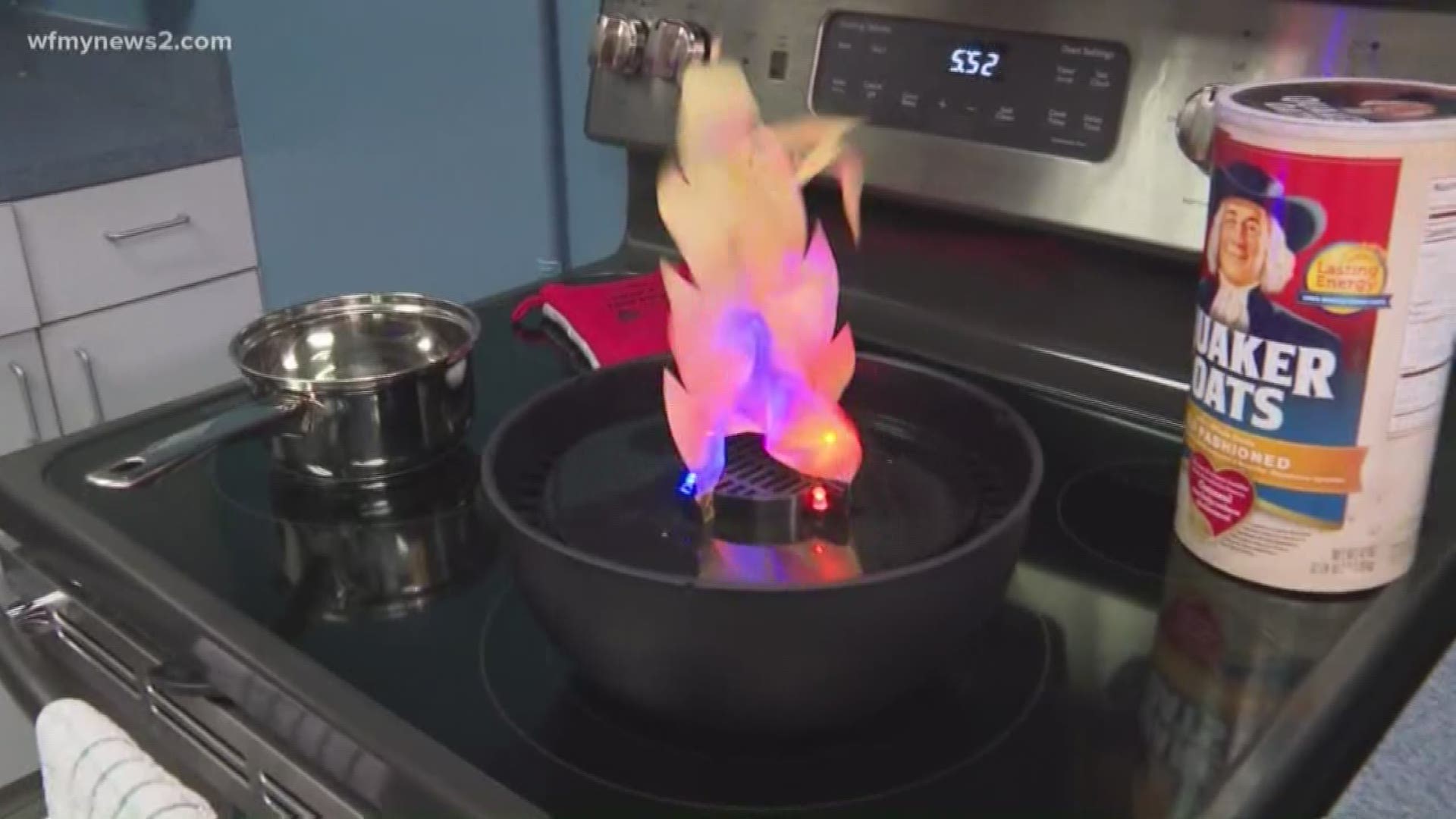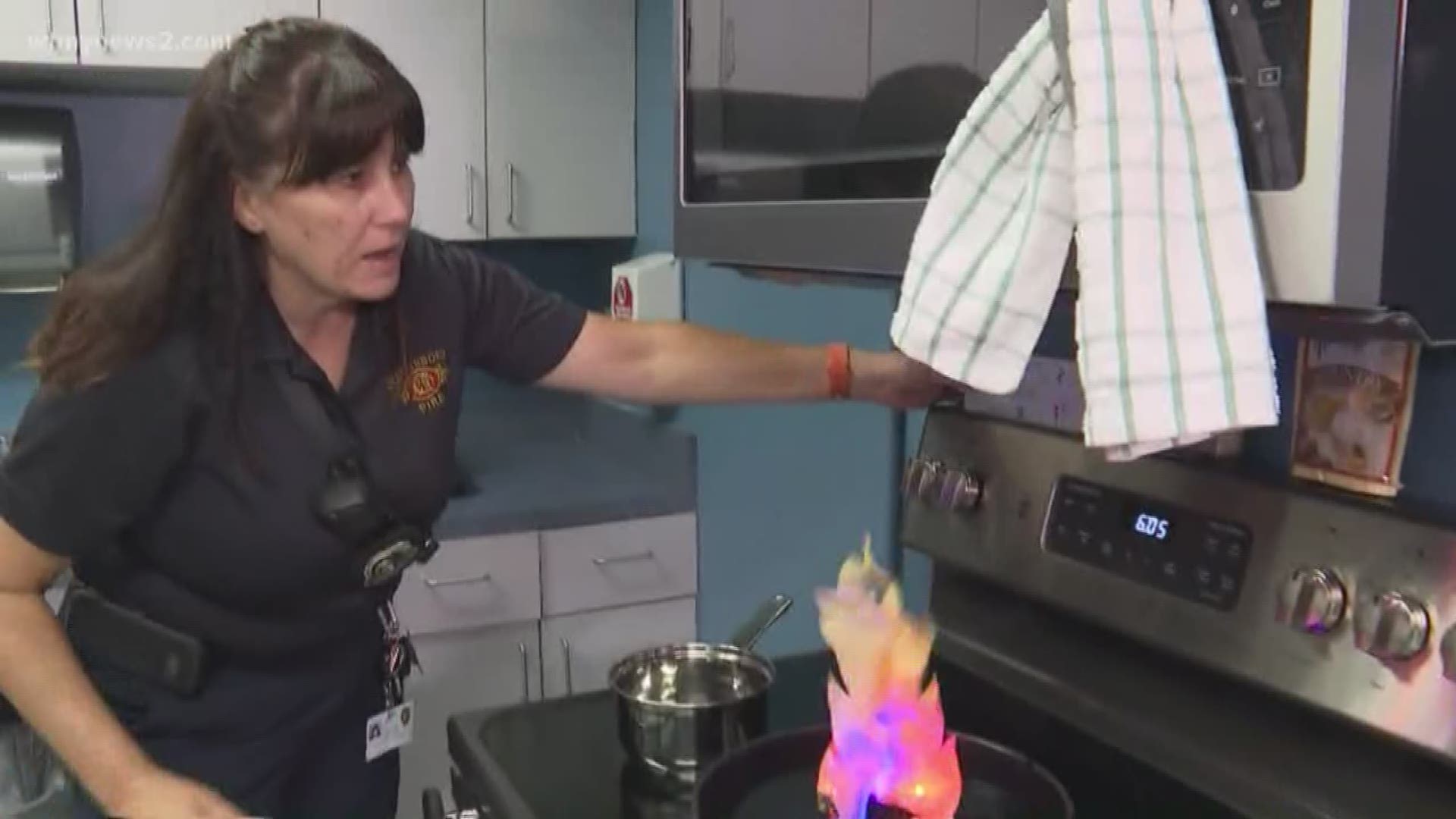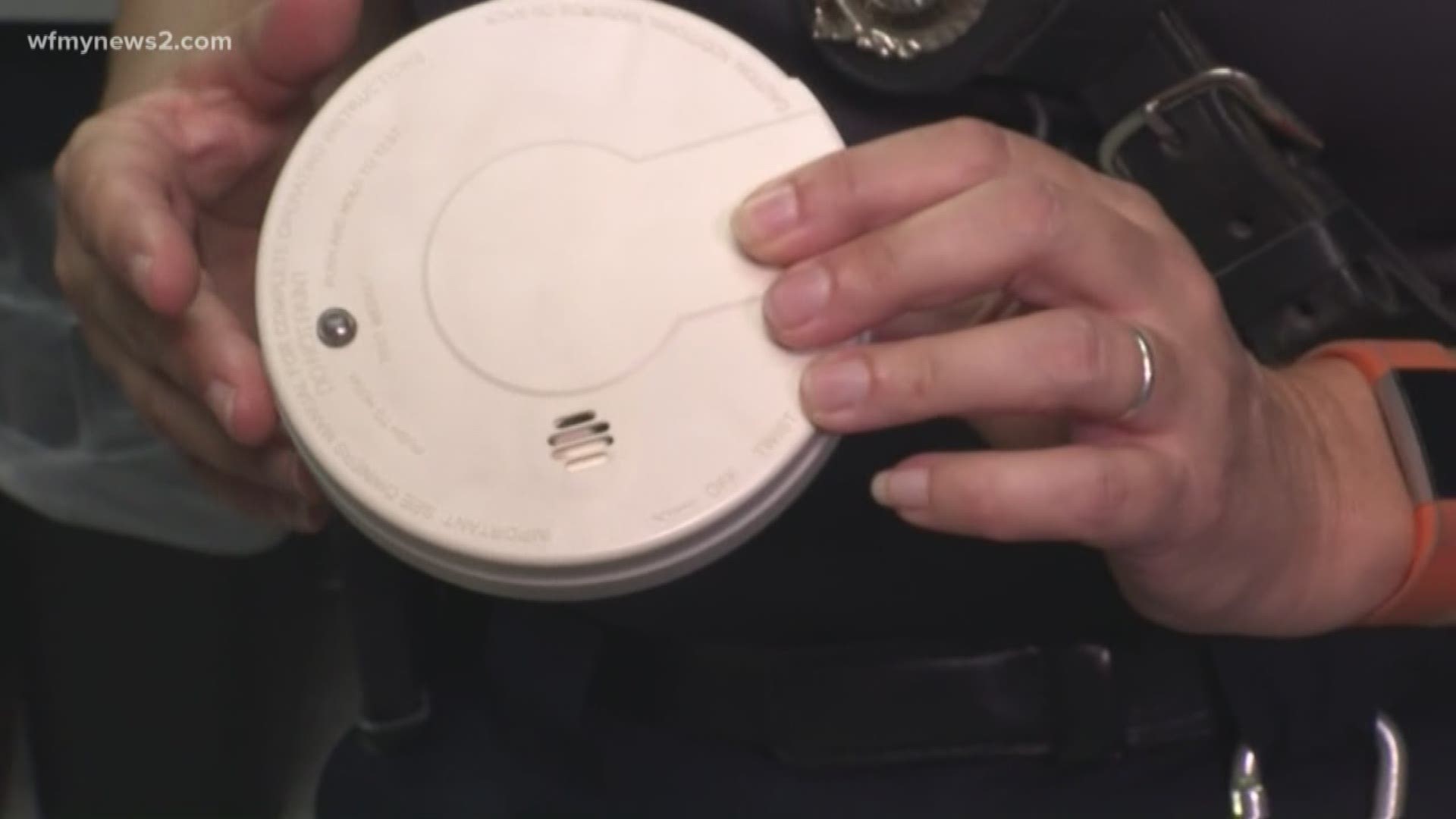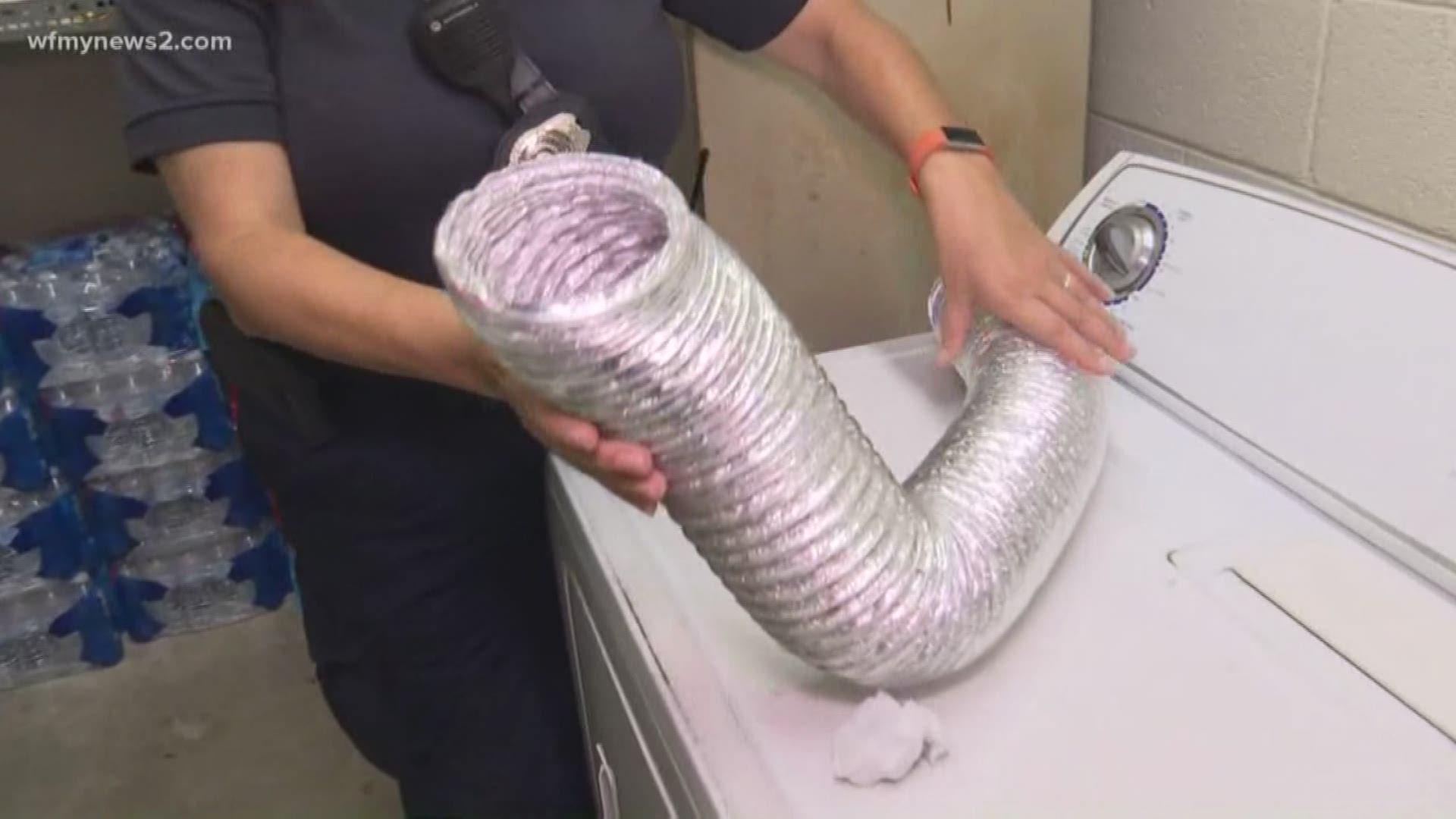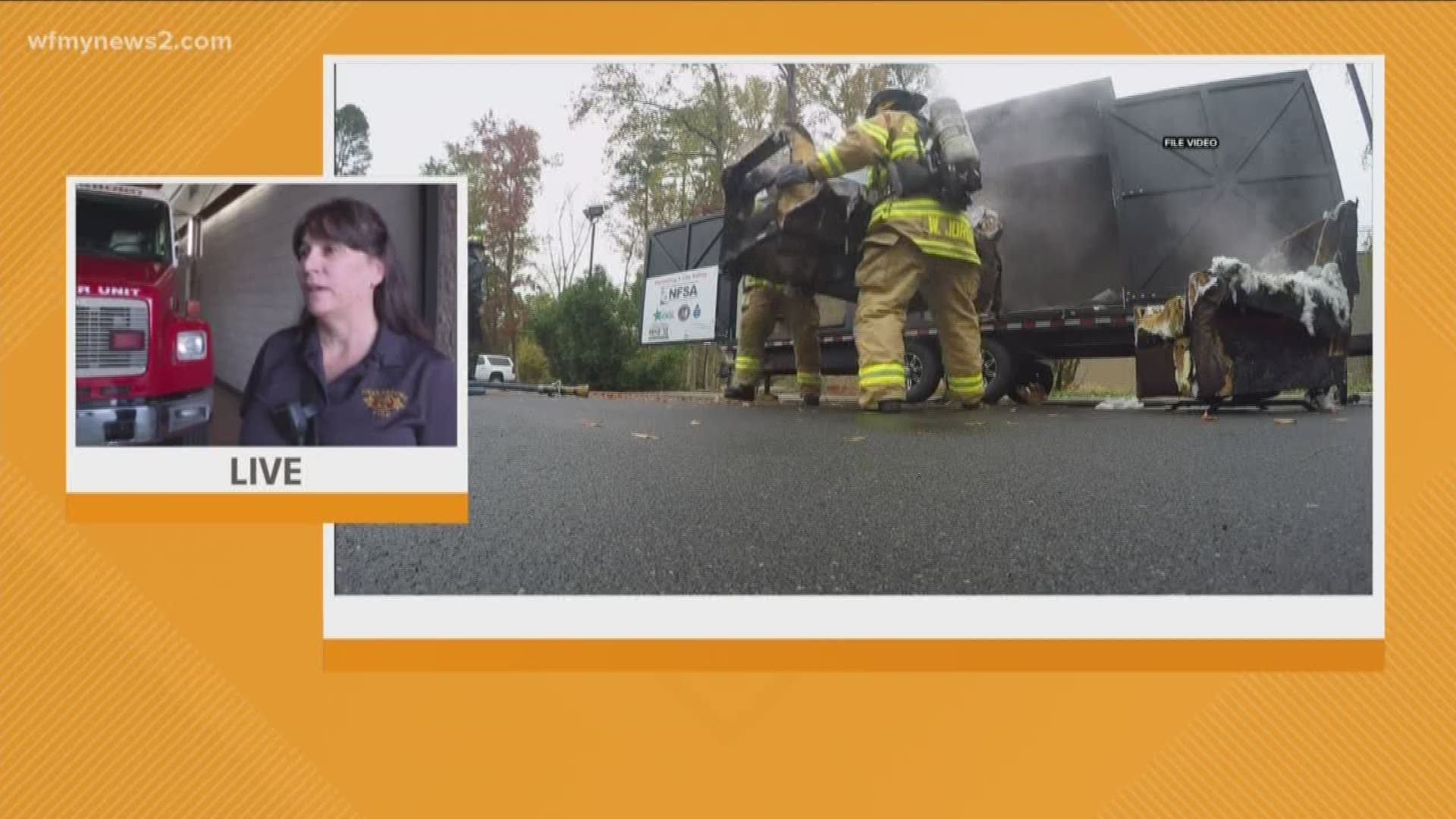GREENSBORO, N.C. — Each year, on- and off-campus college students experience hundreds of fire-related emergencies nationwide.
There are several specific causes for fires on college campuses, including cooking, intentionally set fires, and open flame.
But, fire officials say, the most college-related fires are due to a general lack of knowledge about fire safety and prevention.
For most students, the last fire safety training they received was probably back in grade school.
Fire officials are now stressing the importance of all college students to practice and understand basic fire preventative measures that could save their lives.
AllState provides the following basic fire safety tips for college students:
1. Ask Questions Before Move-in Day
- Securing a spot in a great dorm or off-campus apartment might be at the top of your list, but don't forget to ask the right questions before moving in.
- The National Fire Protection Association (NFPA) offers some tips that you and your parents should consider when looking at a dorm or rental, including verifying there is a working sprinkler system and smoke detectors outside sleeping areas.
- It's important to be prepared, since between 2011 and 2015, U.S. fire departments responded to an average of 4,100 structure fires per year in residence halls, fraternities and sororities, says the NFPA.
2. Decorate Your Room With Safety in Mind
Decorating your new dorm room is fun, but are you furnishing with fire safety in mind? There are some things you might need to know before decking out your room:
- Halogen lamps: In a survey of more than 50 colleges, MONEY found that many prohibit halogen lamps, calling them a potential fire hazard.
- Ceiling decorations: Items should not hang from or cover your room's fire sprinklers, as the decorations may hinder them from working, says the U.S. Fire Administration (USFA). Remember to consult your school's residence life department for additional guidelines regarding decoration policies.
- Extension cords: You may need to rethink using extension cords. According to the NFPA, you should avoid running extension cords across doorways or under carpets. Extension cords should only be used in temporary situations and not for long-term use, says the NFPA.
- Furniture arrangement: Decorating can also extend to how you've set up the furniture in your room, which may pose a potential hazard. Do not have items that block your access to a door or window, says the NFPA.
- Smoke alarms: Does the blinking light from your smoke alarm near your bed bother you? Removing the batteries or disabling the alarm are not safe options, according to the USFA. Instead, you may want to consider moving your bed so the light isn't so bothersome.
3. Don't Overload Outlets
- If you'll be bringing a laptop and smartphone with you to school, you'll need somewhere to charge them. And don't forget the TV and gaming system that you'll need to plug in, too. You'll need to consider how you'll power your electronic devices in your room, because, according to the USFA, overloading electrical outlets can be a fire hazard.
- According to the NFPA, you should only plug in one heat-producing appliance into a wall outlet at a time. You should also unplug small appliances after use, including your iron and coffeemaker (if it's allowed). Don't forget to take a look at your electrical cords and replace any that are damaged or loose, says the NFPA.
- Make sure to also use a surge protector, too, especially if you have a computer in your dorm room, suggests the NFPA. You don't want a surge to fry your computer! Be sure to check with your college to see which type of surge protector is recommended and allowed.
4. Leave Prohibited Items at Home
- You know not to light a candle or burn incense in your dorm, but there are plenty of other fire hazards that may not be so obvious.
- According to Consumer Reports,some colleges and universities prohibit items that may pose a fire risk, such as toaster ovens and space heaters, says .
- Consult your school's residence life policies or the terms of your lease regarding prohibited items, and leave items that aren't allowed at mom and dad's house. If you do want to add ambiance to your dorm room, you may want to consider flameless candles, says the USFA.
5. Get Out When You Hear the Fire Alarm
- While you might think you left fire drills behind in high school, taking part in your dorm's or house's fire drills may help you stay safe.
- You need to evacuate the building immediately when the alarm sounds, says the USFA.
- Remaining in your room instead of exiting the building when the alarm goes off is not only unsafe, you might also face some consequences.
- Whenever possible, find at least two ways to exit every room, the USFA suggests.
6. Be Alert When Cooking
Cooking equipment accounted for 86 percent of structure fires in dorms, fraternities and sororities between 2011 and 2015, according to the NFPA. There's more to cooking than simply following a recipe. Here are some tips to help ensure you're safe while cooking:
- Stay in the kitchen: Make sure to be alert and remain in the kitchen while your food is simmering, baking, or roasting, says the NFPA. Do you need to grab something from your room? Turn off the stove if you need to leave, even if it's for a short period of time, says Ready.gov.
- Watch a demonstration: A resident assistant should give a demonstration on how to use the cooking appliances in a residence hall and provide information on how to clean them, according to CampusSafetyMagazine.com.
- Have a lid nearby: Keeping a lid close while you're making a meal can help with smothering a small grease fire, says the NFPA. Simply, slide the lid over the pan and remember to turn off the cooktop and wait for the covered pan to cool, suggests the NFPA.
- Keep flammable items away: Don't forget to move anything that may catch fire (like your oven mitts) away from your cooktop, says the NFPA.
- Turn pot handles: Feel like making some soup or pasta on the cooktop? Remember to turn your pot handles toward the back of the stove so they can't be bumped or pulled over, suggests the USFA.
7. Microwave Meals Like a Pro
- Before you cook some macaroni and cheese or ramen noodles in the microwave, make sure you have microwave-safe cookware.
- According to the Department of Agriculture's Food Safety and Inspection Service, heatproof glass is a microwave-safe container, while metal pans, foam containers and aluminum foil are among those materials that are not.
- Also, the National Institutes of Health says to stay near your microwave, especially when microwaving popcorn, as heat can build up and cause a fire. If there's a fire in the microwave, the NFPA says you should "leave the door closed, turn the oven off and unplug it from the wall." If the fire doesn't go out, then you need to get out and call the fire department, says the NFPA.
8. Speak Up if You See a Fire Hazard
- Does your dorm's floor have an expired fire extinguisher, or is the smoke detector in your off-campus apartment chirping? Be proactive by alerting the appropriate personnel if you are aware of any fire hazards.
- If you live off-campus, contact your property management staff or landlord about any fire hazards you may see. Don't forget to purchase a fire extinguisher for your off-campus rental, either.
- If you need help finding the right type, the NFPA recommends selecting a multi-purpose extinguisher. Take some time to learn how to use the fire extinguisher, too.
9. Tailgate Safely
- If you're planning to do some cooking for you and your friends before the next football game, then look at these reminders from the NFPA on how to stay safe while tailgating.
- Never leave the grill unattended, and let the coals cool completely before placing them in a metal container. In addition, follow the stadium's specific rules regarding tailgating, as there may be restrictions regarding where you can have your party and the proper procedures for cleaning up.

